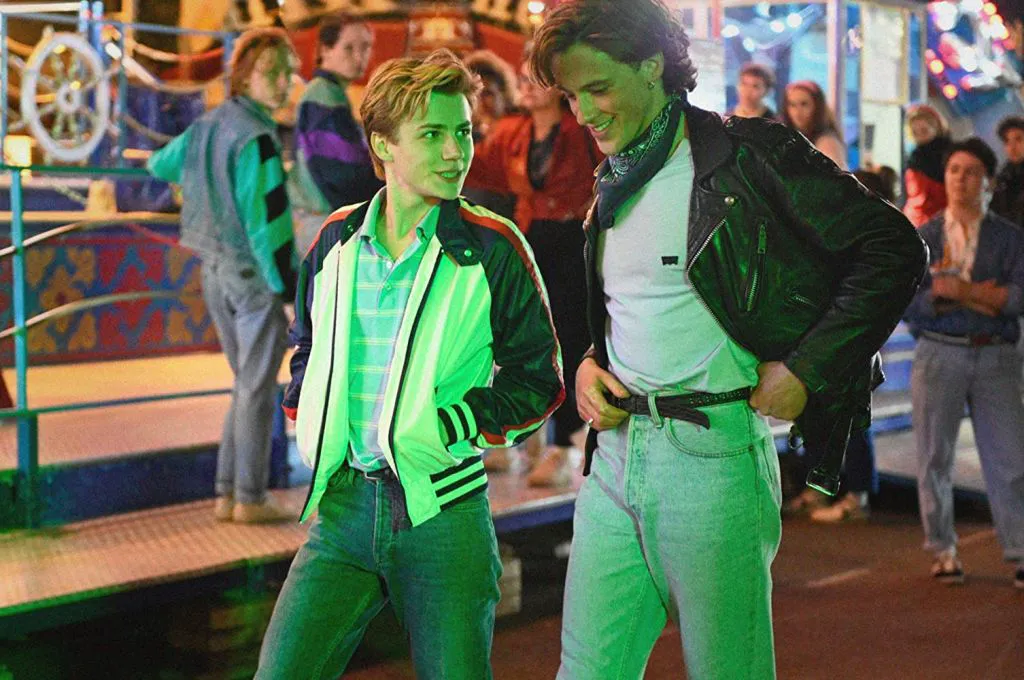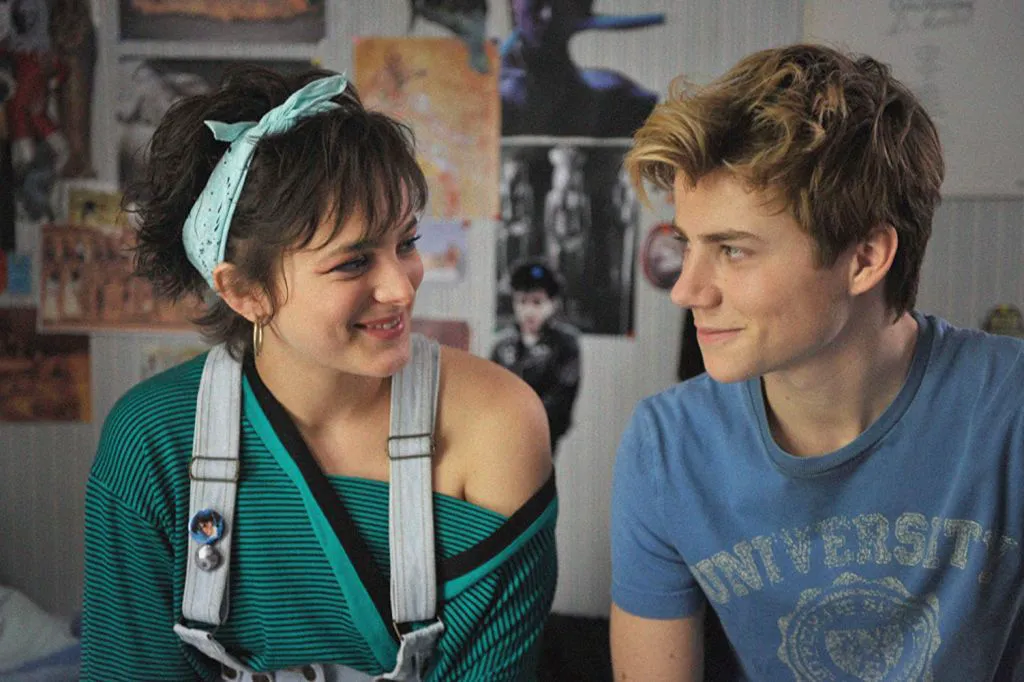Summer of '85: A Nostalgic Dive into Youth, Love, and Loss
Alexis is sixteen, fresh out of school, and adrift. Should he follow his teacher’s advice and hone his literary talent at the lycée, or should he ditch the daydreams and jump straight into the workforce? The summer holidays offer a brief window for contemplation, but they begin with a near-fatal storm. He’s rescued by David – older, cooler, sporting an earring, riding a motorcycle, and running the family store after his father’s passing. Initially, they become friends, then colleagues, and eventually, lovers. One day, David, with a fascination for death, asks Alexis to promise that if one of them dies, the other will dance on their grave. Alexis reluctantly agrees, never imagining he’d have to fulfill that promise so soon.

François Ozon stands as one of the most compelling French directors of our time, alongside Bertrand Bonello and Olivier Assayas. While Ozon may revisit certain motifs and ideas, he fearlessly experiments with genres, parodies classics, and, like a seasoned Hollywood craftsman, tackles unfamiliar material out of sheer curiosity. In the past five years, he’s delivered four distinct films: “Frantz,” a black-and-white World War I drama; “Double Lover,” an erotic thriller about twins; and “By the Grace of God,” a chilling journalistic investigation into pedophile priests. “Summer of '85” marks another 180-degree turn, this time into a sun-drenched, coming-of-age melodrama – a personal film about growing up. It’s a movie that might feel overly formulaic and sentimental, yet it retains an undeniable charm and is sure to resonate with its audience.

Deceptive Simplicity? Not This Time
The phrase “deceptive simplicity” has often been associated with François Ozon’s films – they may seem unremarkable on paper, but they consistently offer unexpected twists. “Summer of '85” is a notable exception. Throughout the film, you anticipate a hidden agenda or a postmodern twist, but it never arrives. Surprisingly, it unfolds exactly as the synopsis suggests: love, death, and a dance on a grave. However, the order is not entirely linear. Ozon employs a parallel narrative structure, beginning almost at the end, with a prologue reminiscent of “The Irishman”: a long, sweeping camera shot and a grandiose voiceover, picked up by the protagonist who breaks the fourth wall, ready to tell the audience how he arrived at this point. The detective-like intrigue quickly dissipates, ruling out any possibility of murder. The film’s tone then shifts dramatically, transporting the viewer back to the past – the screen is bathed in sunlight, and a Rohmer-esque tale of youth frolicking on the beach begins. However, instead of moral dilemmas, we encounter Ozon’s signature themes of jealousy, affairs, and desire.
Echoes of the Past
The film has drawn comparisons to Luca Guadagnino’s “Call Me by Your Name” – both set in the 80s, exploring first love, grappling with sexual identity, and culminating in a tragic ending. There may be some truth to this, but “Summer of '85” is more akin to Abdellatif Kechiche’s unfinished autobiographical trilogy, “Mektoub, My Love”: the protagonist is passionate about literature but spends his youth on the beach and in clubs, with glimpses of youthful bodies. This combination cost Kechiche his status and potentially his career. While that probably won’t happen to Ozon, this film holds significance for him. In the mid-1980s, he read the source material, Aidan Chambers’ novel “Dance on My Grave,” and now he has chosen to adapt it, grounding it in a specific time and place, embarking on a Proustian journey back to his own youth. This backstory might seem unnecessary, but it changes the way you perceive the film: yes, it’s not essential, yes, it’s derivative, but at least it’s honest, without trying to overreach, and with the iconic track “In Between Days” by The Cure playing during the credits.